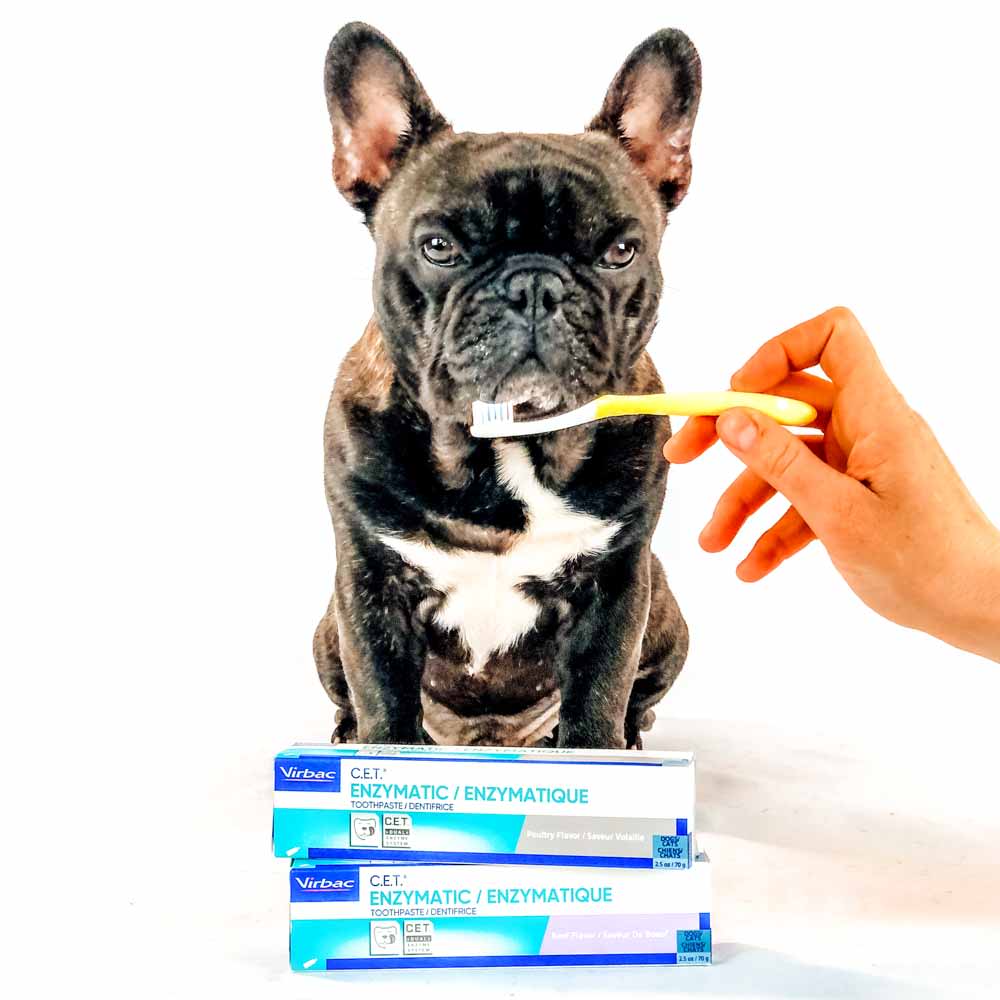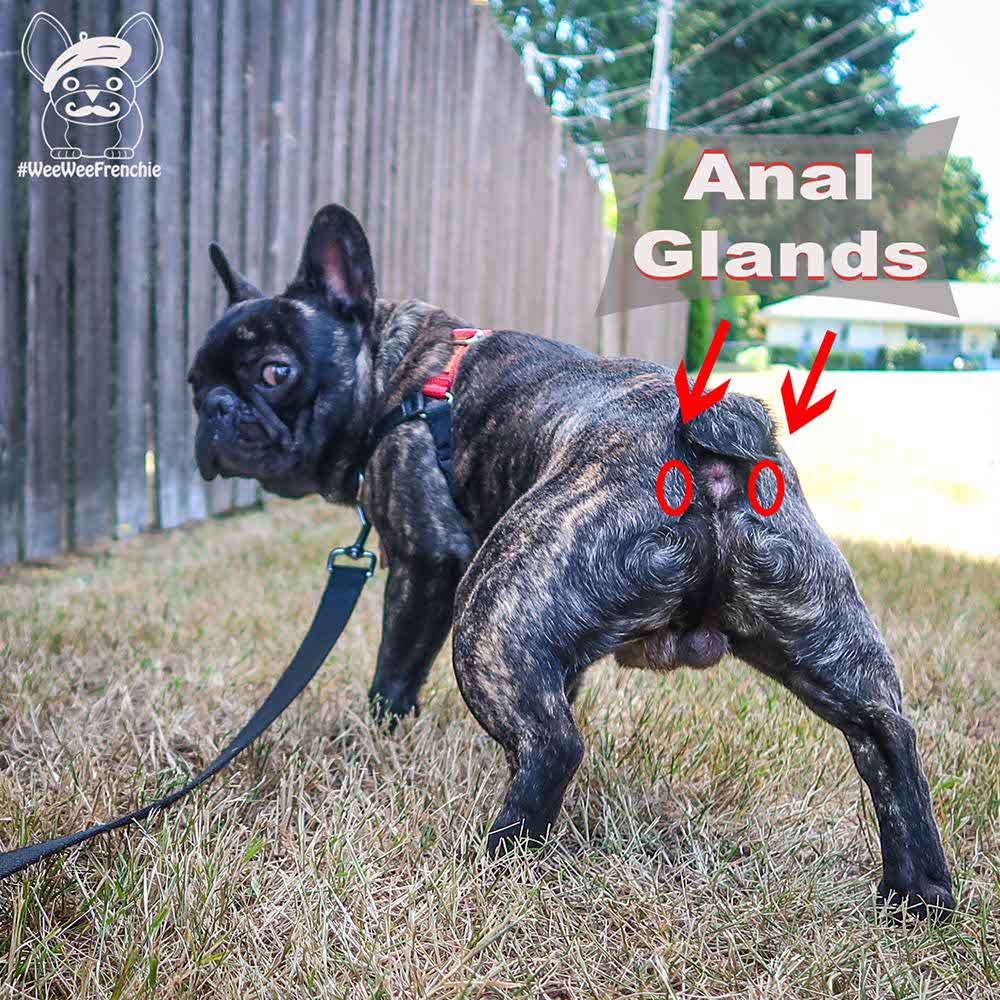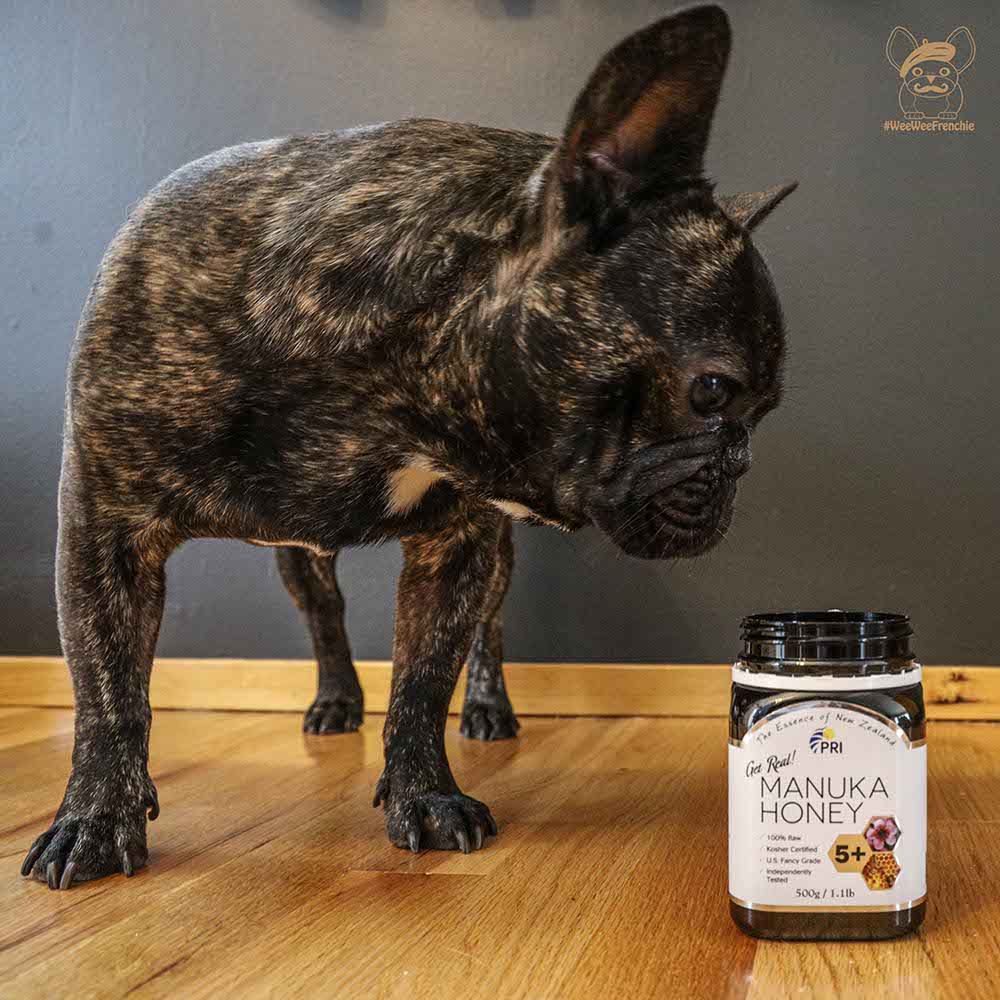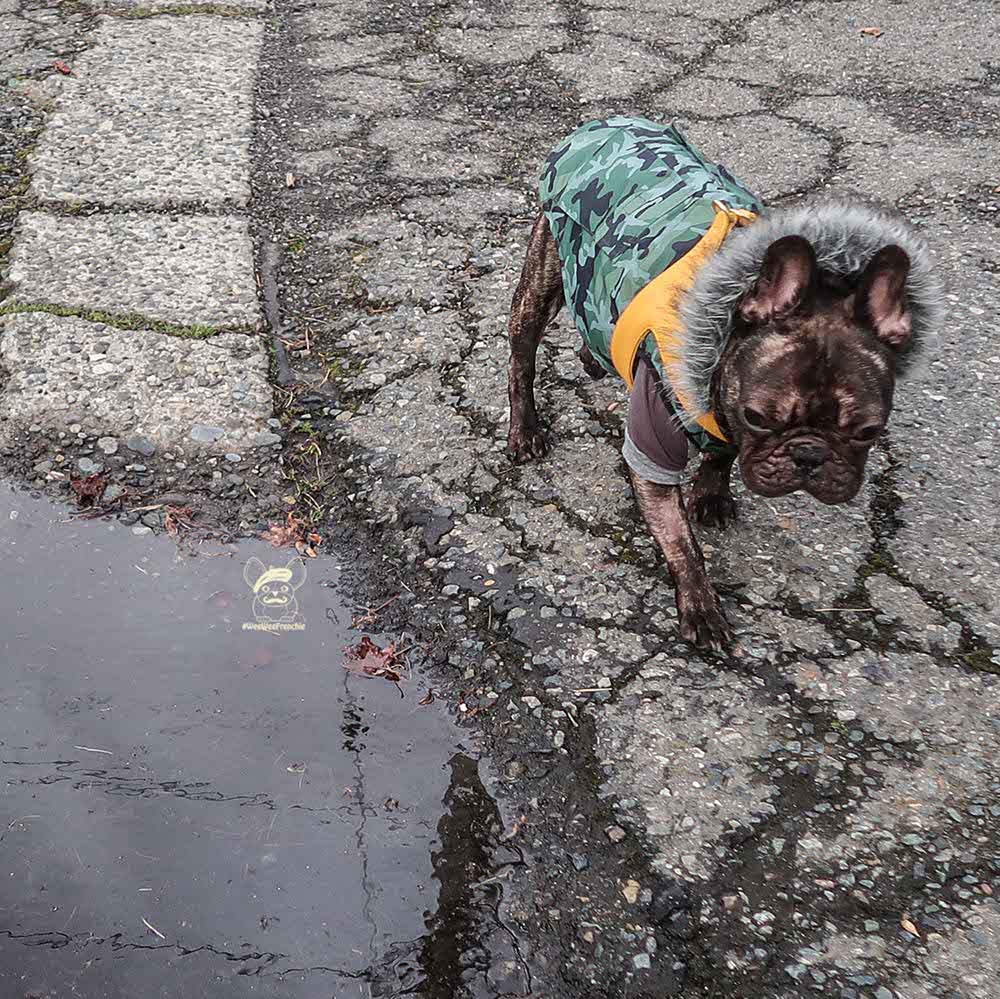Why Does My Dog Eat Rocks, Mulch, and Other Rubbish?
Raising a puppy has been an interesting experience. Every time I believe that we may be nearing the end of puppy stage, Phoenix (7 months) surprises me with another behavioral change. He is always sniffing everything when outdoors but this month, his latest fetish is rocks and mulch.
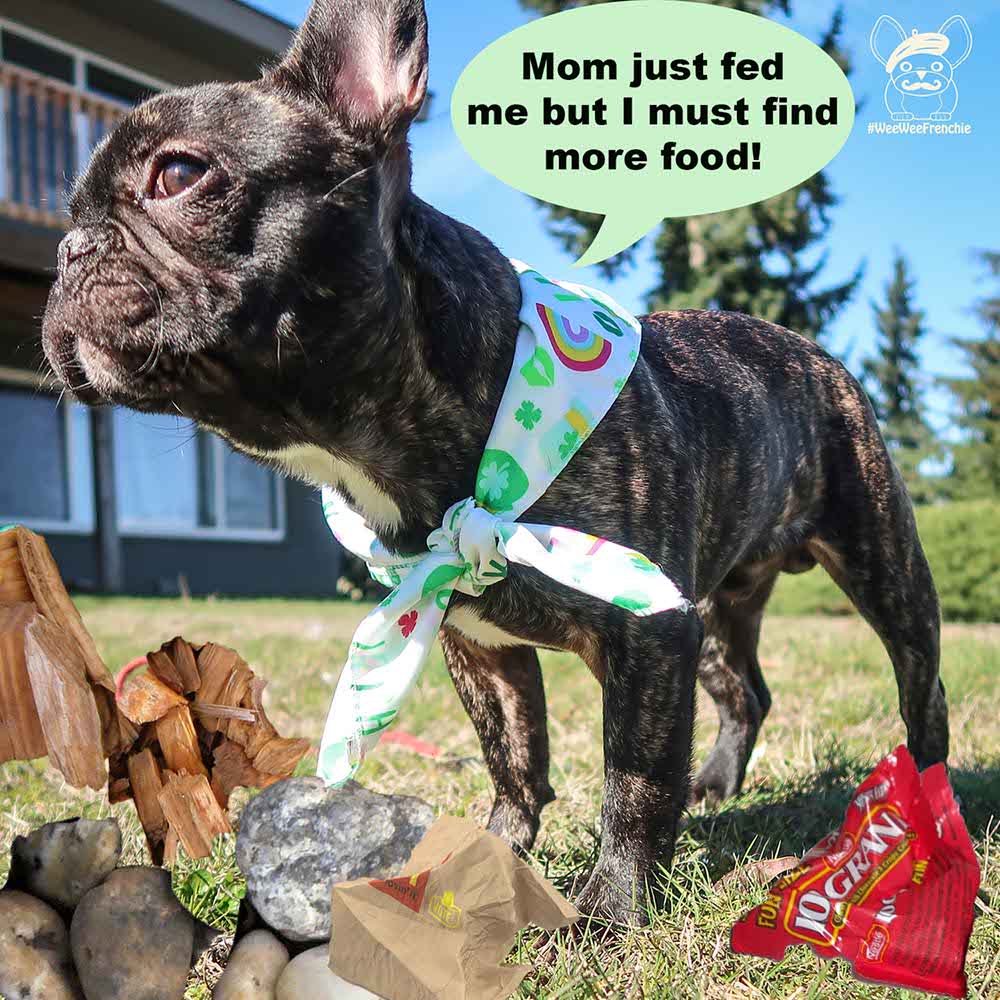
Raising a puppy has been an interesting experience. Every time I believe that we may be nearing the end of puppy stage, Phoenix (7 months) surprises me with another behavioral change. He is always sniffing everything when outdoors but this month, his latest fetish is rocks and mulch. As much as I love that my boy is enjoying the outdoors, I also worry about supervision of my pup. Is it harmful if my dog swallows a small pebble? Is eating mulch ok?
In writing this post, I realize that I may sound like a neglectful puppy mom. Who allows their dog to eat rocks or mulch? I keep a watchful eye on my puppy, especially given that we live in a new area with different and exciting scents to explore. Our house has a lot of small pebbles and mulch as landscaping, and if it is raining, Phoenix will only explore the mulched area under a covered deck where he will stay dry. It sounds like typical puppy stuff, right?
It was only a few days after moving into our new house when I noticed Phoenix had a profuse runny nose out of one nostril. I was more perplexed given that he had been safe inside the house while I was at work. After a few days, his nose was not getting better, and he constantly attempted to clear his throat of any drainage. The vet stated that Phoenix must have sniffed a small piece of grass or mulch up his nostril and removal of the small object would be too invasive on a short-snouted dog. He was given a ten day course of antibiotics, in case it was an infection, and after several days of more drainage and throat-clearing, he was back to normal health.
Fast forward one month, and Phoenix continues to sniff the mulch, despite my efforts to keep his nose from getting too close to the ground. In addition, he loves to pick up small pebbles and sticks from the yard and driveway. More times than I can count, I have looked away from Phoenix for only a second to find him chewing on something he found in the yard. After a quick swipe of his mouth, a rock, mulch, or even trash has popped out. It makes me nervous that one of these days he will swallow a foreign object before I can intervene.
Why would my dog want to eat rocks or mulch?
- Boredom - There are new scents and intriguing objects in the yard. If it smells good, why would you let it go to waste? Of course, he will try a nibble to determine if it delicious enough to eat.
- Lack of Nutrients - With a growing puppy, maybe my dog is trying to tell me something . . . does he needs more food? Since he has been going through a growth spurt, Phoenix has been getting more food than our 3 year old French bulldog, Cooper, but maybe it is not enough? Feeding guidelines are only suggestive. Maybe he is not getting enough vitamins and minerals from his current food, indicating he needs a food change.
- Behavior Issues - A dog can have compulsive disorders causing them to consume rocks, mulch, or other foreign objects in order to gain attention. Depending on how much time you spend at home with your pup, behavioral issues can be a sign of a bigger issue . . . your canine misses you.
- Gastrointestinal Disorder - Dogs with cancers or tumors of the gastrointestinal tract, inflammatory bowel disease, or worms, can trick a dog into thinking he is hungry. Therefore, he may eat rocks, or other debris, either to curb the hunger or “cool” the inflammation in hopes of feeling better.
- Anemia - A condition called pica, (which is when dogs or humans will eat non-food items), can be caused by anemia (a lack or decrease of red blood cells). If your dog is eating rocks repetitively when taken outside, it may be time to ask the vet for a blood test to reveal any underlying blood imbalances, like anemia.
What if your dog has eaten rocks or mulch?
If you notice rocks, or other foreign objects, in your dog’s stool, it is time to call the vet. Blood tests can reveal any blood or electrolyte deficiencies, which may be corrected with a change in food. If blood tests do not reveal any health changes, then correcting behavior will be necessary. Ultrasounds, X-rays, or CT-scans can reveal any gastrointestinal blockages or other issues that may be the culprit for your dog’s behavior changes.
Eating too much of anything is never a good thing. Mulch, rocks, or any other kind of debris can block the gastrointestinal tract leading to digestive issues. Mulch, since it is made of wood, can splinter when chewed, thus causing irritation, abrasions, tears, perforations, or blockage. Too many rocks can block the gastrointestinal tract, which may need surgical intervention to resolve.
How to prevent compulsive nibbling/eating of foreign objects
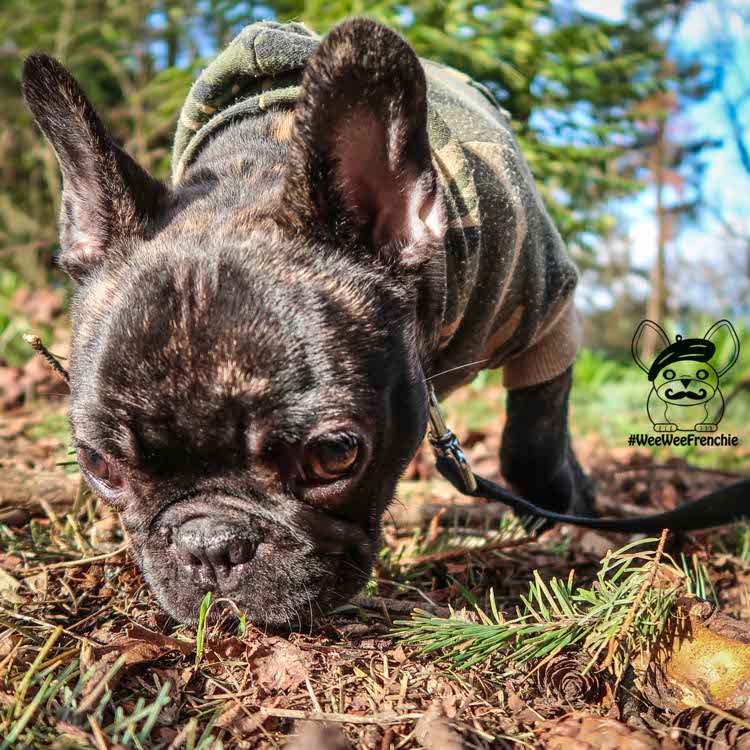
Supervision is key. If your dog continues to eat foreign objects, like rocks or mulch, even when being lured away by treats, then it may be time for a vet visit for a full health assessment and lab tests. If your dog is bored, then put some chew toys around the yard so he has something new to distract him when outdoors. Evaluate your dog’s food nutrition label, and discuss with your veterinarian to ensure your dog is getting adequate nutrition. If bigger behavioral issues are to blame, then attending dog school or obedience class may be necessary to help your dog learn coping skills and proper behavior.
Bottomline, dogs are going to get into things that are not for puppies or dogs. They are curious creatures by nature and get into things that are not intended for them. Always be vigilant, and watch your dog closely when outside. Make sure to contact your vet immediately if you are not sure if your dog ingested a strange object or if there is a change in behavior. Lethargy, lack of eating, confusion, or noticing foreign objects in stool, are all cause for concern. Gastrointestinal disorders can become bigger issues, usually resulting in surgery, if left untreated. Prevention is key to a happy and healthy pup.

